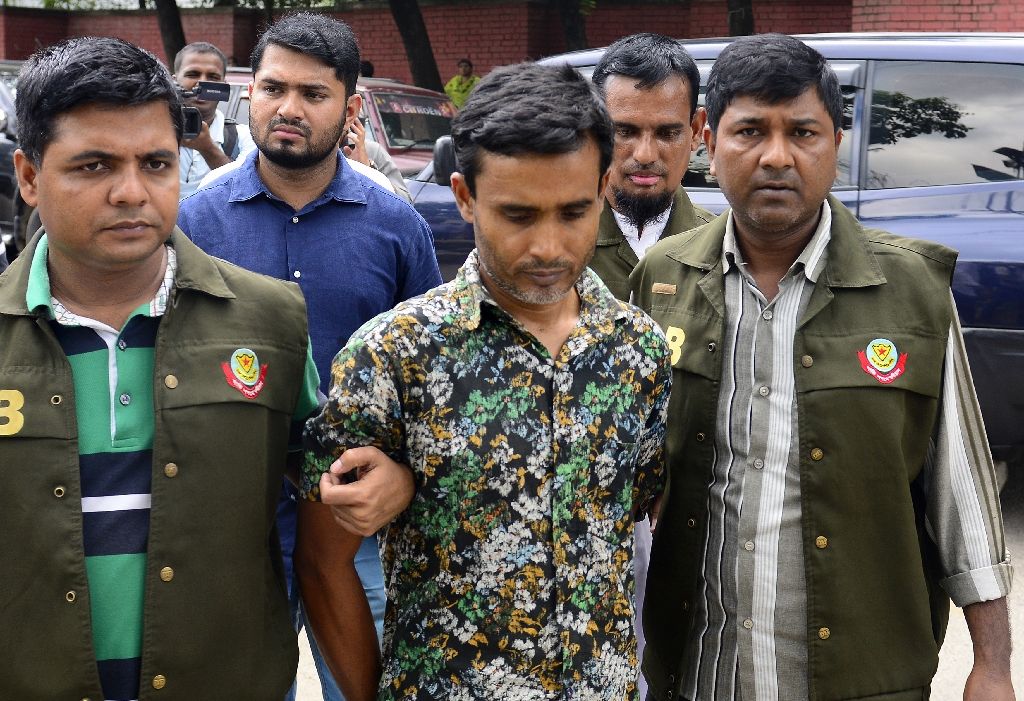Dhaka- Bangladesh said Monday it is fast-tracking trials of Islamist extremists, hours after a senior leader of a militant group was hanged for a 2005 blast that killed two judges.
Asadul Islam, 42, also known as Arif, was a senior leader of the banned group Jamayetul Mujahideen Bangladesh (JMB).
Bangladesh blamed the JMB for a July 1 attack on an upmarket Dhaka cafe in which 22 people, mostly foreign hostages, were shot and hacked to death.
The country’s security forces launched a crackdown against Islamist extremists following the cafe attack, which shook the image of Bangladesh as a moderate Muslim nation.
Since July, police have shot dead nearly 40 suspected extremists including JMB’s new leader Tamim Chowdhury, a Canadian citizen of Bangladeshi descent who allegedly masterminded the cafe carnage.
Bangladesh’s courts have also accelerated the prosecution of Islamist extremists, raising concern among rights activists who say such actions may be politically motivated.
Attorney General Mahbubey Alam told AFP the government was “trying to fast-track all the militant-related cases,” including bomb attacks on a court complex outside Dhaka, a cultural function in a northern town and a new year’s festival in the capital.
Police Spokesman A.K.M Shahidur Rahman said there were “at least 64” Islamist extremists on death row and their appeals were being heard in the higher courts.
However, Human Rights Watch said there was no conclusive evidence the death penalty acted as a deterrent.
“When terror attacks happen, governments often feel under pressure to show that they are doing something,” South Asia Director Meenakshi Ganguly told AFP.
“What is needed instead is careful investigation to identify and prosecute perpetrators with proper evidence.”
JMB was founded in the late 1990s and seeks to impose sharia law on Bangladesh, a Muslim majority but officially secular nation of 160 million people.
It shot to prominence when it carried out a coordinated bombing attack in August 2005 that involved more than 400 small blasts across the country.
Arif’s body was buried amid tight security in his home town shortly after his execution, local police chief Pankaj Chandra Roy told AFP.
